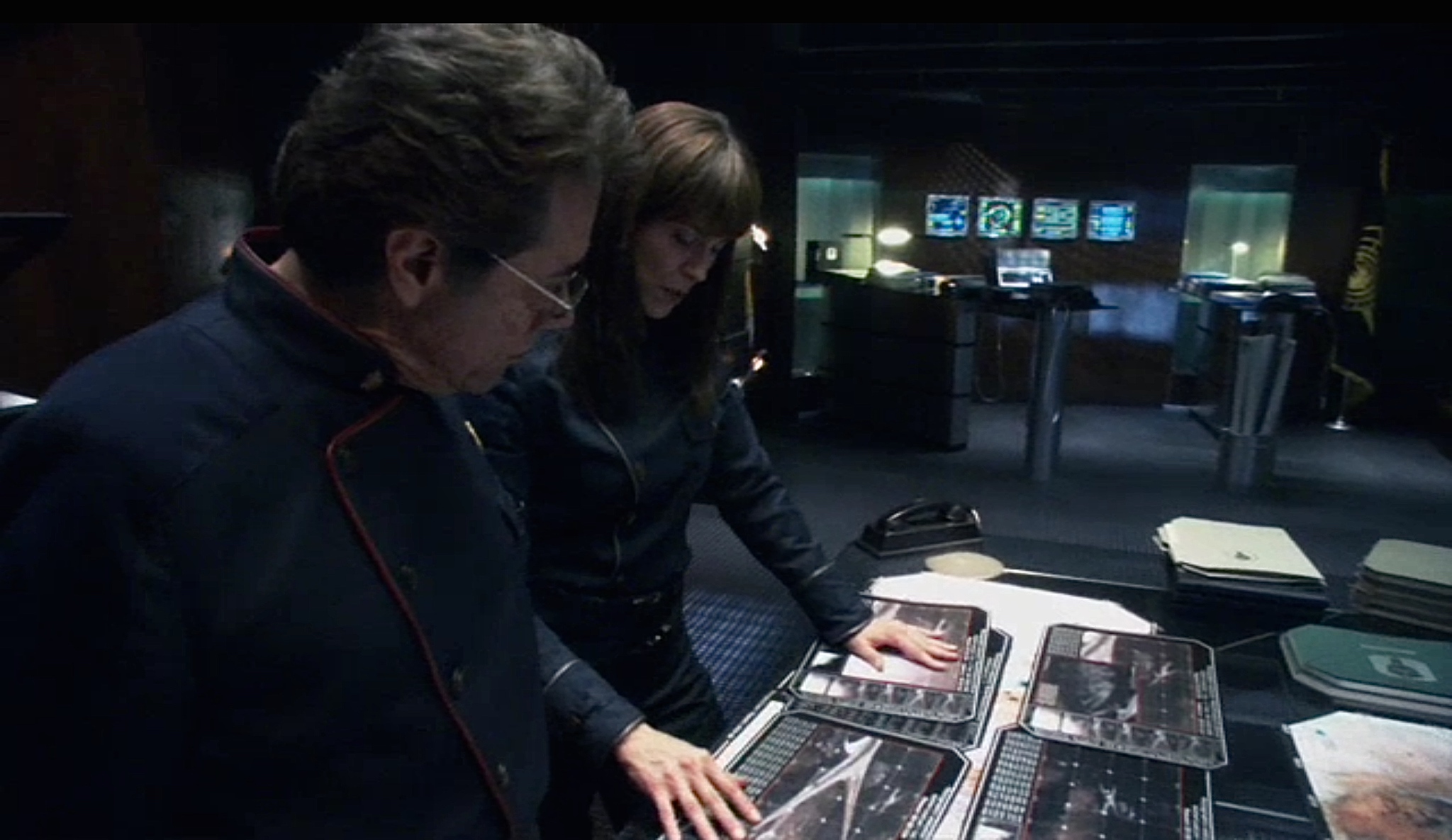The second season of “Battlestar Galactica” closed with a major letdown on Friday. I suppose it’s really the end of the first season, cut in two. Series typically air about 24 shows per season, which is almost Battlestar Galactica’s count after two, uh, seasons.
The miniseries launching the series is a marvel. The show captures a quality, a flow of good storytelling that transcended anything else on television. The first season (OK, half season) delivers excellent entertainment and, again, some smart storytelling. Acting, direction, sets, special effects, the drama all are exceptional.
“Battlestar Galactica” tells an allegory of our times. An unexpected, sneak attack by Cylons (can you say terrorists) nearly obliterates the human race. The robotic—or in some cases, not so robotic—Clyons have religion, too. They worship one god (can you say Jihad) compared to the humans’ many. The storytelling evokes mystery and finesse and wicked plot twisters.
The second half season tells another story of our times, perhaps more brutal than the early episodes. The humans fight among themselves throughout most of the 10 episodes. There is a nice little military coup against the civilian government in the earlier episodes and lots of abuse and brutal integration of military prisoners (can you say Iraq). Granted, the prisoners are Cylons, and their kind did nuke all 12 human planets.
But these Cylons look human, too. Midway through the season finale—not at the episode start—viewers were warned about a nasty, upsetting scene coming up next. A human interrogator begins beating a pregnant Clyon and then prepares to rape it (can you say looks like a woman) from behind. Brutality against women is an ongoing theme throughout the second half season. Maybe the producers see appeal to the show’s largely male demographic.
Considering all the human infighting, the unity and purpose of the Cylons and the downright abuse of Cylon prisoners by the humans, I ended the season feeling really sorry for the bad guys and wondering if maybe they were blessed with divine right, or at least divine inspiration. If the producers’ goal is to garner lots of sympathy for the drama’s antagonists, then the second half season truly is a success. If not, it is a bust. Sure, I will watch the next season opener, but not with much hope that the qualities that gave “Battlestar Galactica” edge will return.
I will give the producers credit for beating the Federal Communications Commission. The F-word is tabu on TV, but “Battlestar Galactica” characters get away with the substitute “frak,” which the original 1970s TV series also used, but sparingly. I certainly heard lots of “frak this” and “fraking that” and “frak you” during the second half season.
